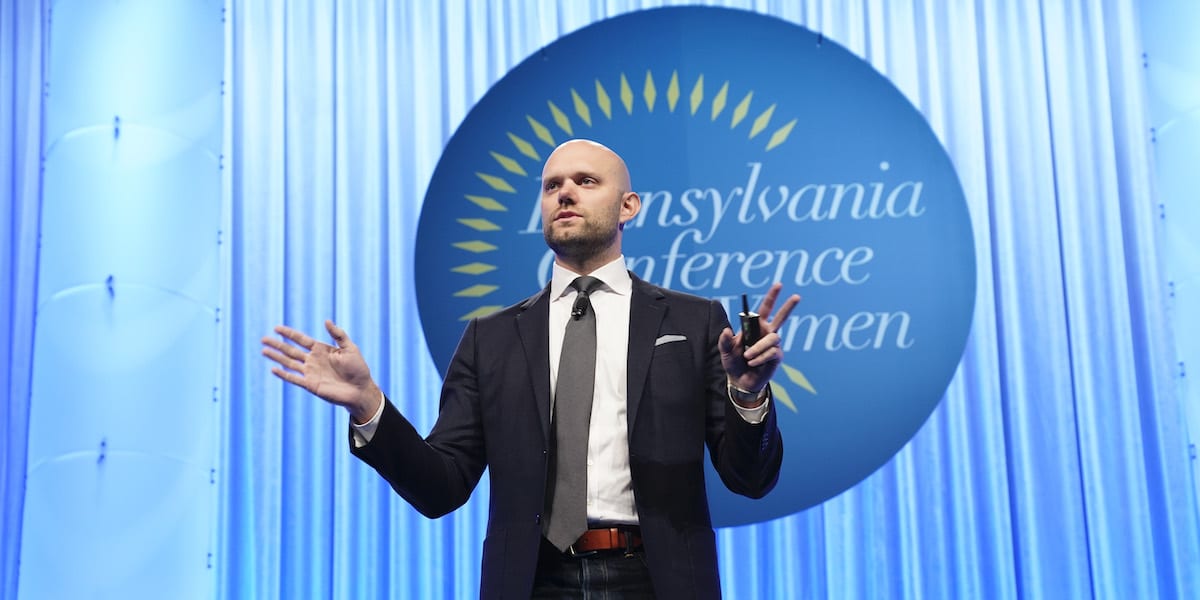James Clear: If You Want to Make Big Changes, Think Small

When he was a teenager, James Clear got hit in the face with a bat during a baseball game. It took surgery and nearly nine months for him to be able to work on regaining basic functions, like walking in a straight line. And even then, he could only focus on developing one tiny new habit a time. But together, these tiny habits made a big difference—big enough that, in college, he was named an Academic all-American.
They also led him to be an expert in how tiny habits can help us reach our potential—insights he compiled in 2018 The New York Times best-selling book, Atomic Habits, and shared with the 10,000 people at the 2019 Pennsylvania Conference for Women.
“So often we think that change is about being ambitious. But setting a goal is the easy part,” he said. “Excellence is not really about making radical changes. It is about accruing small improvements over time.”
To demonstrate his point, he told the story of the British Cycling team, which for nearly 100 years had, as he puts it in his book, “endured nearly 100 years of mediocrity.” No British cyclist had won the Tour de France in that time, and the team had won one only a single gold medal at the Olympics.
Then a new coach, Dave Brailsford, was hired to turn the team around. His strategy was something he referred to as “the aggregation of marginal gains.”
As Clear explains it, that translated to instituting an ongoing series of 1 percent improvements in everything they did—from using biofeedback sensors to monitor how each athlete responded to a particular workout to hiring a surgeon to teach each rider the best way to wash their hands to reduce the chances of catching a cold.
The result: Within three years, British cyclists won the Tour de France—and then five out of six of the races in a row. And, at the next Olympics games in Beijing, the team won 60 percent of the gold medals available.
The story illustrates his finding that one percent improvements are not just “nice to have” but critical to excellence—because habits compound. If you get 1 percent better every day, by the end of the year, you end up almost 37 percent better. In other words, put good habits in place, he said, and time becomes your ally.
One of the best ways to put new good habits into practice, he added, is through the “two-minute rule.” Basically, this says whatever habit you are trying to build, you should scale down to something that takes two minutes. For example, if you want to read more books, start by reading two minutes a day.
It can sound silly, he added, but what this does is help you cultivate an identity change—in this example, as a reader—and behavior change, he concluded, really is ultimately identity change.
Meet James Clear
James Clear rocked the world a little last year with a book called Atomic Habits: An Easy and Proven Way to Build Good Habits and Break Bad Ones. It has been a New York Times, Wall Street Journal and USA Today bestseller.
James is also the creator of The Habits Academy, a premier training platform on building better habits in life and work. “Excellence,” he says, “is not really about making radical changes. It’s about accruing small improvements over time and committing to this philosophy of continuous improvement.”